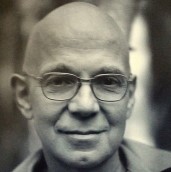Tony Brinkley
TONY BRINKLEY (Pittsburgh, 1948) is a Professor of English at the University of Maine. He has translated extensively modern Russian, German, and French poetry. His poetry and translations have appeared in Another Chicago Magazine, Beloit Poetry Journal, The New Review of Literature, Cerise Press, Drunken Boat, Shofar, May Day, World Literature Today, Otoliths, and Poetry Salzburg Review. He is the author of Stalin’s Eyes (Puckerbrush Press) and the co-editor with Keith Hanley of Romantic Revisions (Cambridge University Press). His translations of Marina Tsvetaeva, Boris Pasternak, and Gyula Kodolányi have appeared in previous issues of Hungarian Review.

